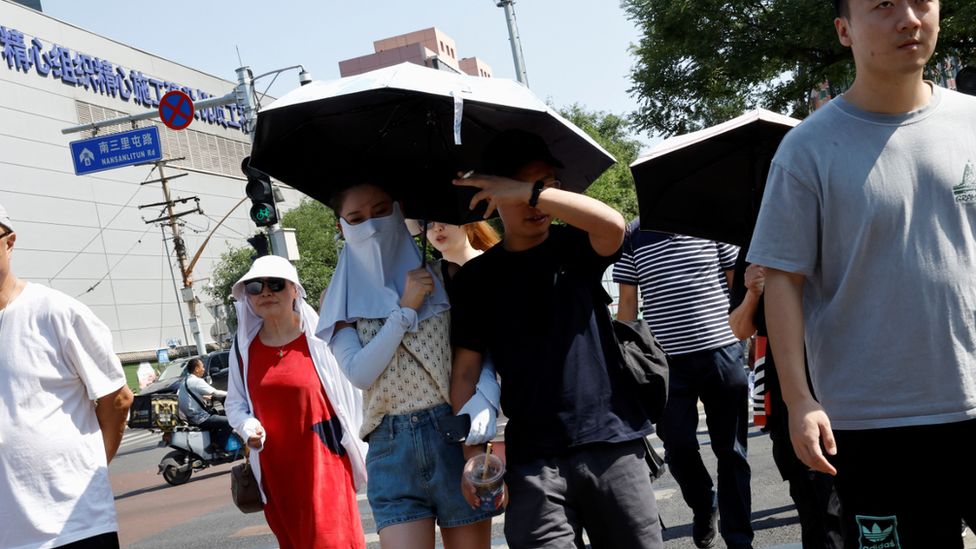The temperature reached 41°C (105°F), making it the hottest June day in Beijing in more than 60 years, according to Chinese weather authorities.
Extreme heat is currently gripping the city, and forecasters predict that it will last through the end of June.
The highest mark since records began in 1961, according to officials' statements on Thursday, was set.
Around China, several monthly heat records have been broken this year, raising concerns about an energy shortage.
With 25 million residents living on the east coast, Shanghai, the largest city in the nation, experienced its hottest May day in a century last month.
Beijing, the northern region's capital, is home to more than 21 million people.
A weather station in the north of the city noted a high temperature of 41.8C on Thursday.
In the days leading up to Saturday, temperatures may reach 39C, according to an orange alert that was previously issued by the authorities.
Additionally, a fortnight earlier than in previous years, the national weather service last week issued a heat stroke alert.
Local officials in Beijing, Tianjin, and other northern and eastern Chinese cities advised people to stop working outside when it was hot outside and to seek medical attention if they began to exhibit signs of a heat stroke.

Some have also issued warnings to individuals and organizations to reduce their electricity usage.
The National Energy Administration conducted its first-ever emergency drill last week in eastern China, simulating a surge and outage in the event of any significant power outages.
In terms of power grid security, the situation was described as "relatively severe.".
A higher demand for air conditioning has increased the load on the power grid by 23% in the port city of Tianjin compared to last year. According to officials, local utility department employees were checking the condition of the electric cables in underground tunnels every day.
Global climate change has resulted in rising temperatures and more frequent heatwaves. In Asia, heatwaves are now 30 times more likely due to climate change, according to a study published last month.
Additionally, during a heatwave in April, it caused temperatures to rise by at least 2C in many regions of Asia. The area is reportedly experiencing "the worst heatwave in [its] history," according to experts.
April saw record high temperatures of up to 45C in Thailand, Laos, Bangladesh, and India.
In some countries, the extreme heat melted roads and other infrastructure, resulted in hospitalizations and fatalities.
One of the world's deadliest natural disasters, heatwaves result in thousands of deaths worldwide each year.







